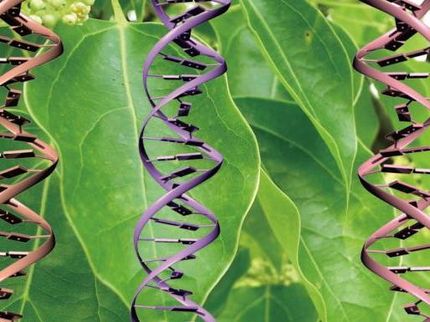Scientists identify gene for resistance to parasitic 'witchweed'
Advertisement
The parasitic flowering plant Striga, or "witchweed," attacks the roots of host plants, draining needed water and nutrients and leaving them unable to grow and produce any grains. Witchweed is endemic throughout sub-Saharan Africa, causing crop losses that surpass hundreds of millions of dollars annually and exacerbating food shortages in the region. Among the crops heavily parasitized by witchweed is black-eyed pea, known in Africa as "cowpea" or "niebe" in Francophone countries.
As the use of cowpea expanded over time, so did the prevalence of Striga gesnerioides, the type of witchweed adapted to parasitize it. Today, witchweed is so virulent that farmers must relocate their cowpea crop to new soil every few years.
Now, scientists at the University of Virginia have identified a gene in cowpea that confers resistance to witchweed attack. This discovery will help researchers better understand how some plants can resist Striga, while others, such as corn and sorghum, are susceptible. The findings are presented in Science .
"Discovery of this resistance gene is not only important for improving cowpea, but may help us develop strategies for improving resistance to Striga in other affected crops," said Michael P.Timko, the U.Va. biology professor who led the study.
Currently there are no natural sources of Striga resistance in corn or sorghum, both of which are major cereal grains in the African diet.
"It is now possible for us to identify all possible genes for Striga resistance in cowpeas, as well as resistance to other cowpea pathogens," Timko said. "We may even eventually breed a more drought-resistant plant and varieties that have higher levels and a better balance of nutrients. We've reached a point where we can manipulate this plant for the good of millions of people."























































